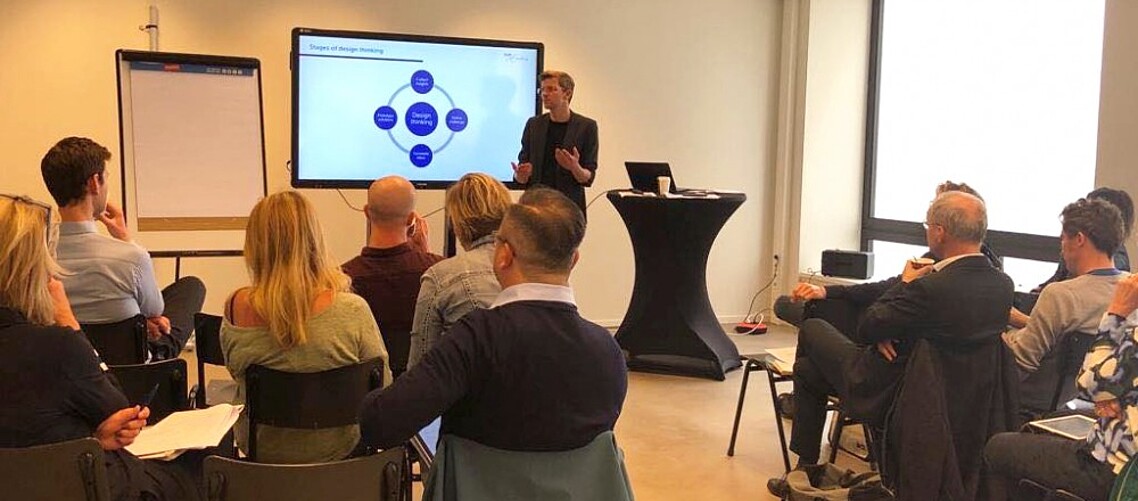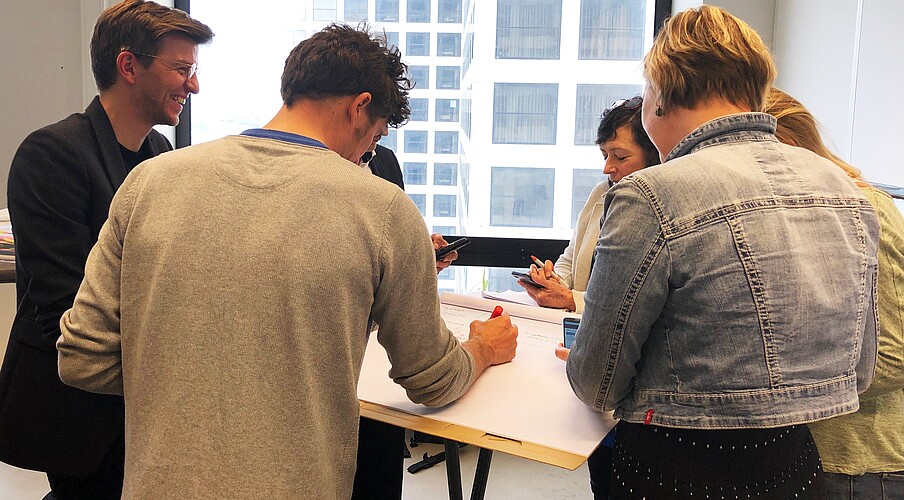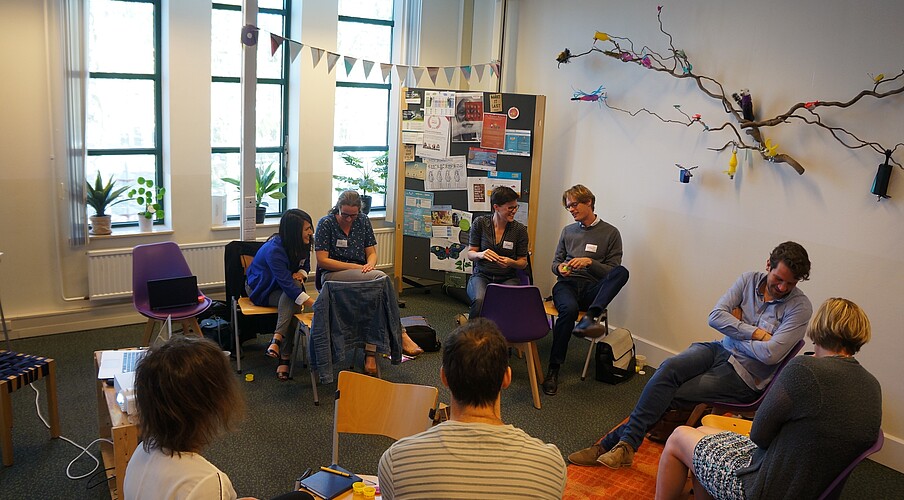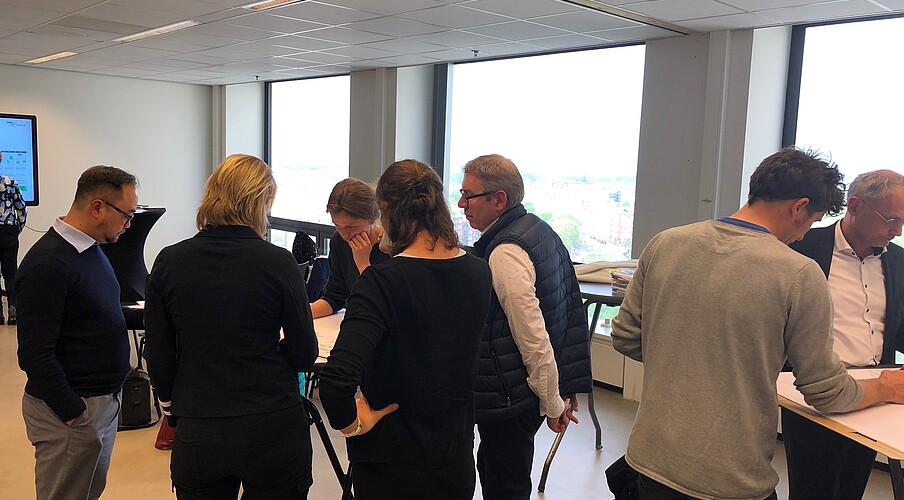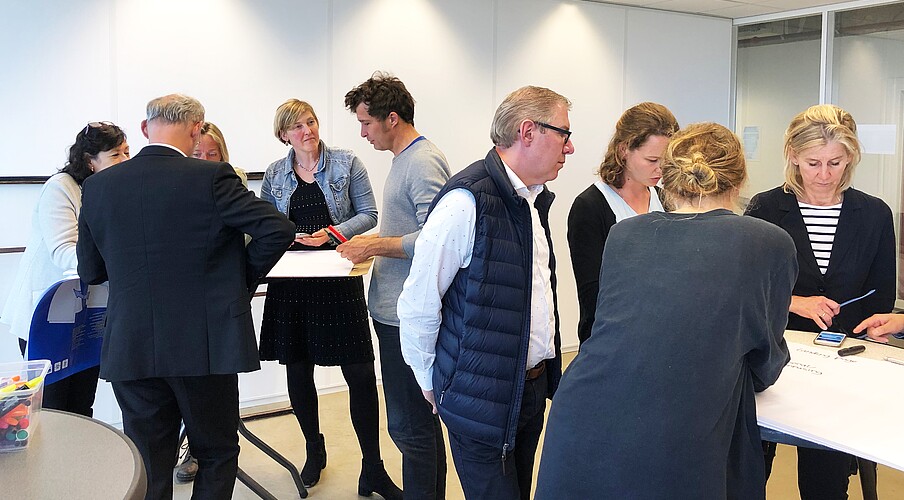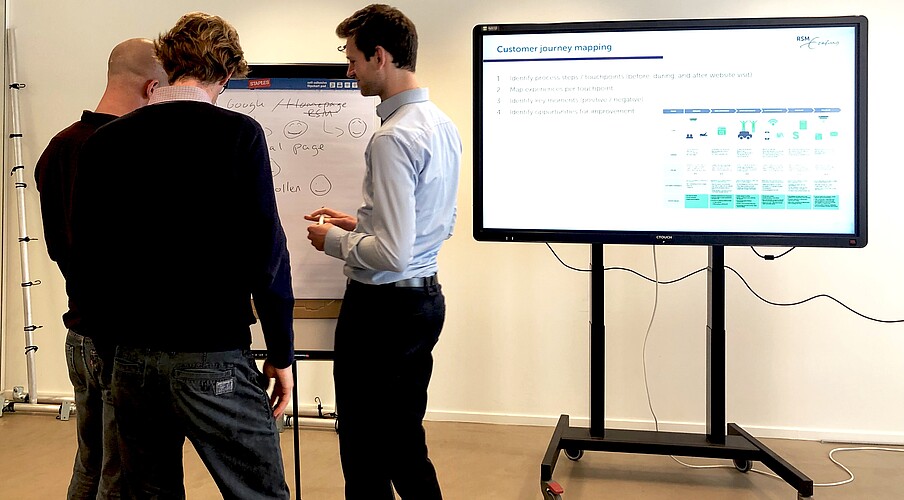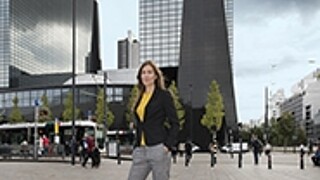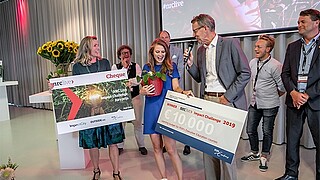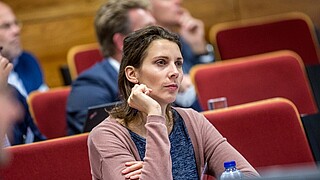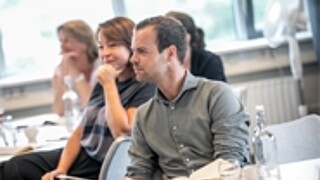Empathy as a source for insights
Dirk Deichmann, RSM’s associate professor in its department of technology and operations management, led the workshop that fast-tracked participants through the stages of design thinking to help participants discover how they might apply this to their own impact challenges.
They were asked to create a souvenir of Rotterdam, and encouraged to think of ‘what people need’. Participants then tried a fact-finding exercise with each other – what would they want as a souvenir? The ideas for souvenirs resulting from this approach were unusual; for example, a visit to a run-down Rotterdam building to recapture the ‘lost authenticity’ of the city.
Dr Deichmann described the process of design thinking; collecting insights from which a more concrete challenge or problem can be defined, generating ideas and testing prototypes. The classic approach of immediately generating ideas risks the innovator becoming hooked on their own ideas.
One participant said: “You only realise you are missing essential information when you get to the ideas or solution phase; I love this assignment!” Other participants agreed that the process helps to fine-tune their plans.
Customer journey mapping
Dirk also introduced customer journey mapping; thinking from the viewpoint of an unlikely customer, the more absurd the better. The outcome for participants would be a better sense of empathy – for example for visually impaired visitors or those without vested interests in the webpage contents.
Design thinking primarily uses an ethnocentric approach to understanding customers and collecting data, and is only one tool for innovators and intrapreneurs to develop new products, services, or processes.
Indoor campfires for peer review sessions
RSM’s partner in the impact challenge facilitated the peer review sessions. Outside Inc. is a consultancy for future-proofing products and services to attract new and existing customers and encourages divergent and creative brainstorming sessions. It aims to use people’s skills to accelerate innovation in business.
The feedback session asked participants to be creative with Play-Doh and explain their thinking processes as they modelled it, showing that products need to change. It is often only by speaking to different audiences, markets and customer groups that product design processes make leaps into unexpected directions. The feedback session mimicked a campfire gathering, with rounds of pitching, questioning, conversing, and reflecting. The most common questions were about:
- gaining support for innovative ideas from within and from outside the organisation
- convincing sceptics
- finding the strengths of a business model by identifying the organisation’s ‘pain point’
- how to tell if the project is heading in the right direction
- how to measure the project’s impact.
After the live session with RSM academics and feedback convenors, the 100 participants on the NRC Live Impact Challenge go back to studying online as they develop theoretical knowledge about the UN’s Sustainable Development Goals and sustainable innovation in order to start to implement positive changes within their organisations. On 27 June at the end of the programme, successful participants will be certified 'Positive Change Leader'. Participants can enter their ideas for innovative and positive change into the competitive element of the programme’s conclusion with a live pitching session in June. The winner will be profiled in NRC, receive a training budget from RSM Executive Education, and will be able to access the network and services from ImpactCity, a community for start-ups and scale-up businesses in The Hague.
